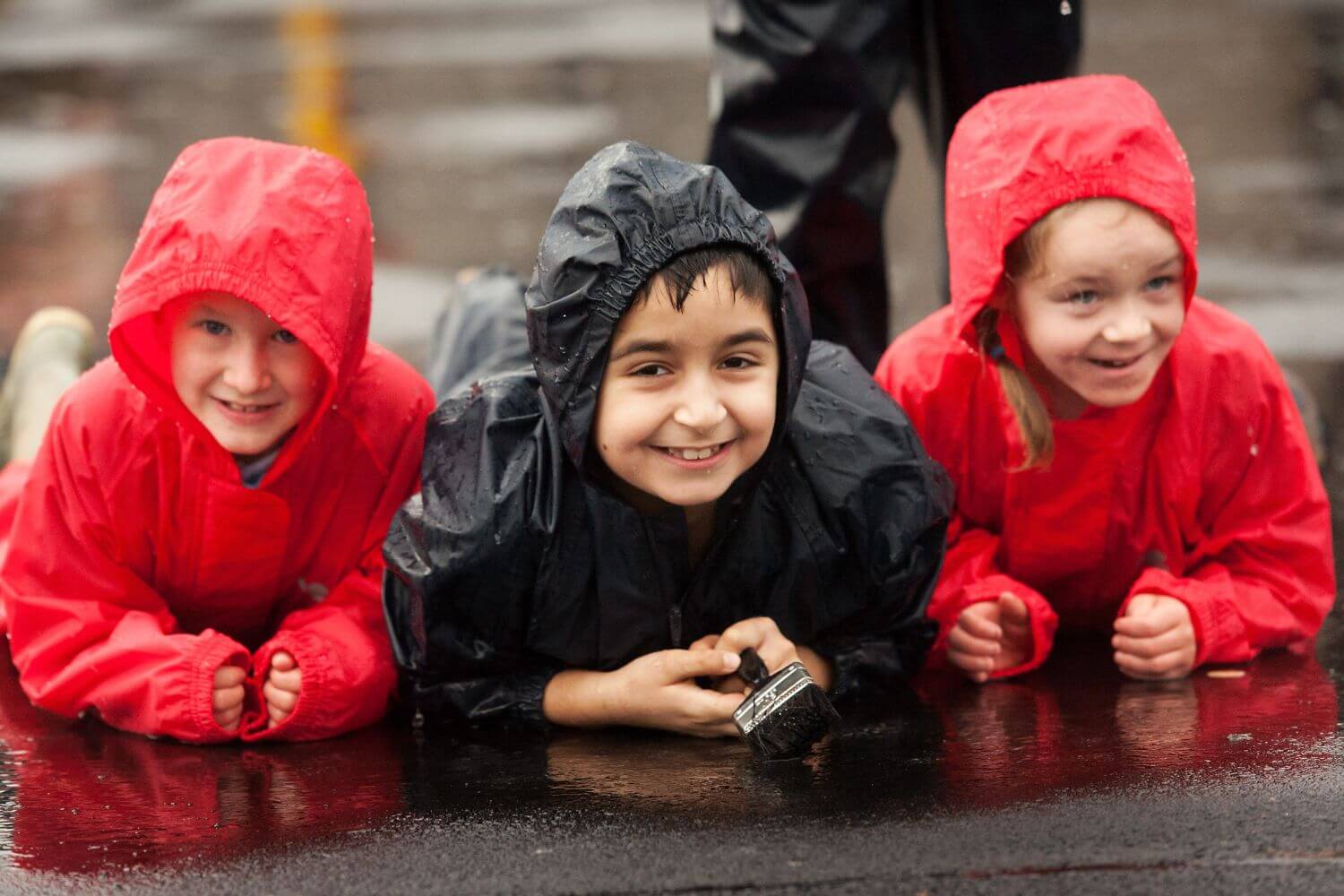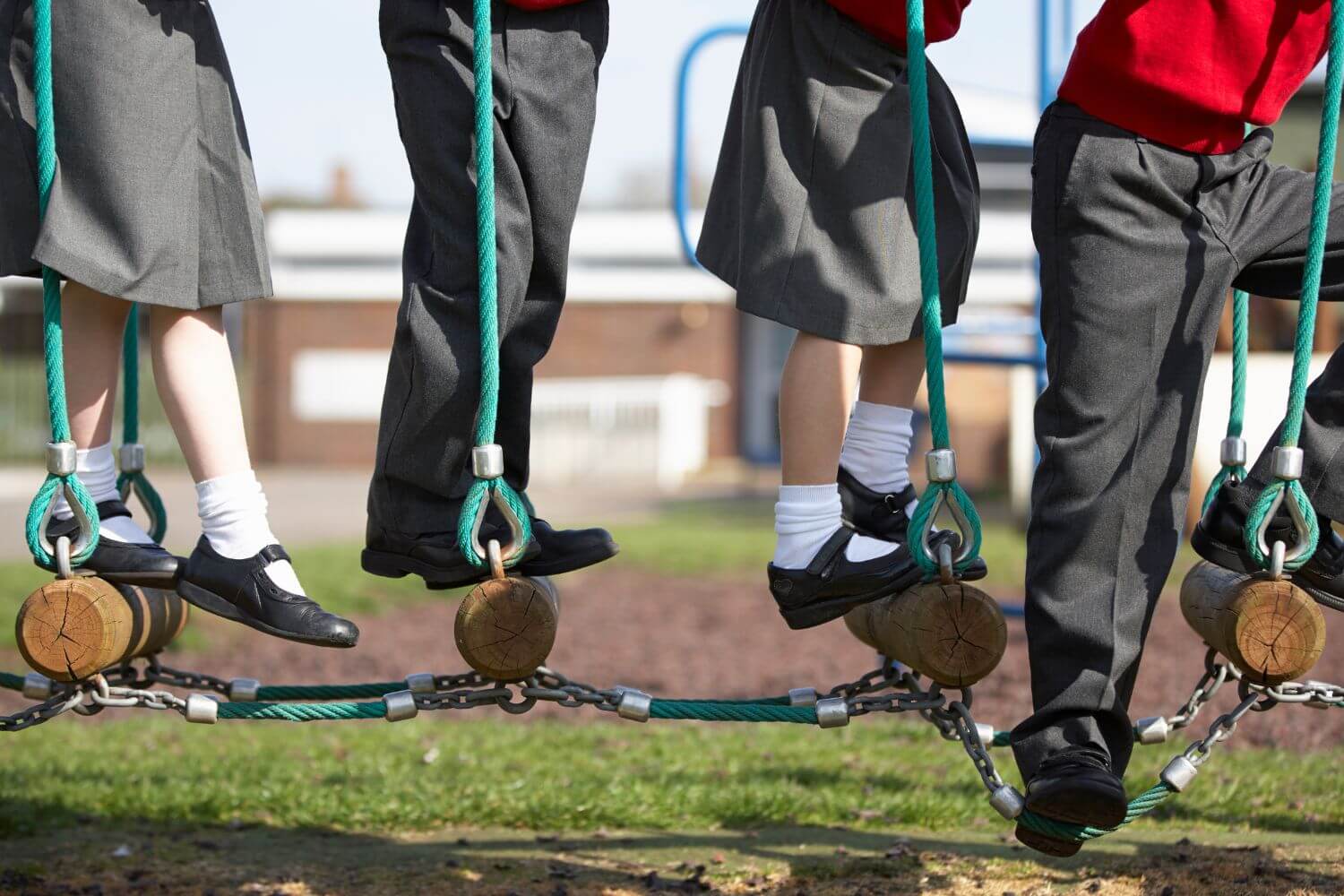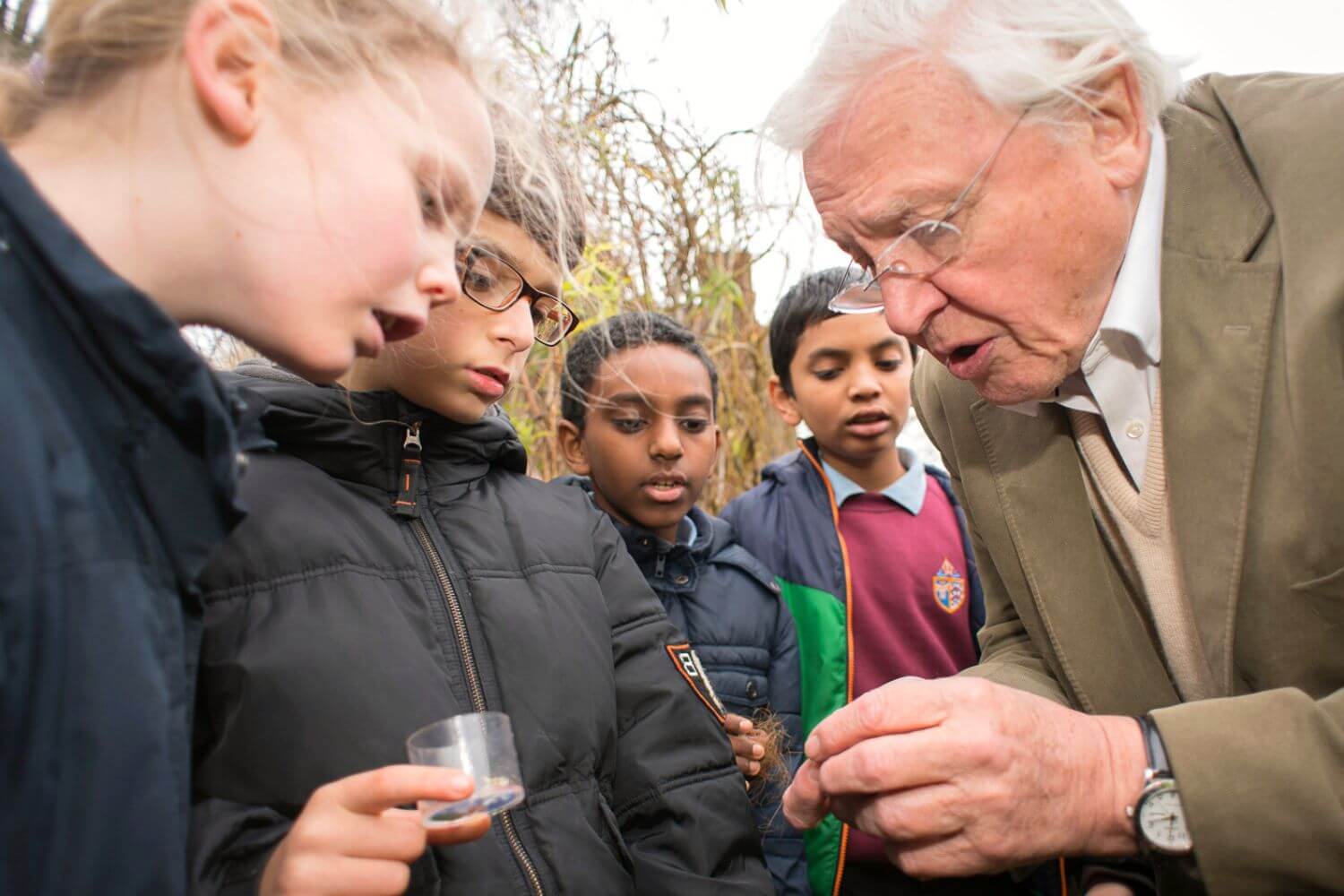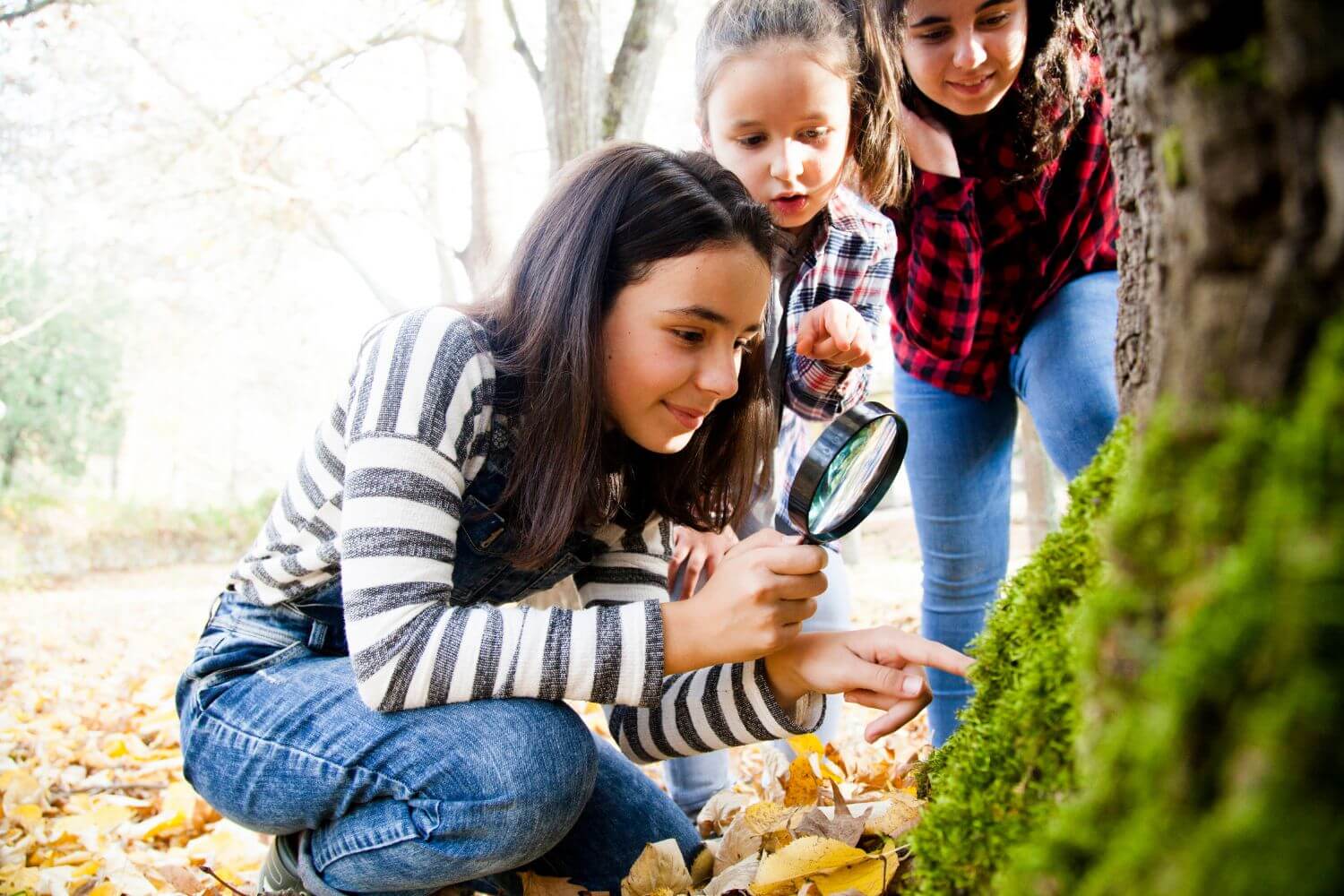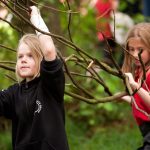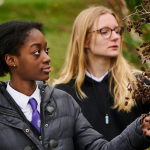How outdoor learning can help you fulfil the four purposes of the new Curriculum for Wales
The new Curriculum for Wales marks the beginning of a new era of education in Cymru. Discover the part outdoor learning has to play.
Already being taught in Welsh primary schools, the new Curriculum for Wales will be rolled out in secondary schools from September 2023. At its heart are four purposes, created to support all young people in becoming:
- ambitious, capable learners, ready to learn throughout their lives
- enterprising, creative contributors, ready to play a full part in life and work
- ethical, informed citizens of Wales and the world
- healthy, confident individuals, ready to lead fulfilling lives as valued members of society.
These four purposes are now defined in law as the purpose of education in Wales, and should serve as guidance for schools and teachers when designing the school curriculum.
How outdoor learning can help
Importantly, the new Curriculum for Wales recognises the value of learning outdoors. We know that taking the classroom outdoors has endless benefits for both pupils and their teachers. Therefore, the Welsh government includes outdoor learning as a key feature of effective, learner-centred pedagogy, citing the potential for:
- high levels of well-being, confidence and engagement;
- social, emotional, spiritual and physical development;
- authentic opportunities for learners to develop and consolidate cross-curricular skills;
- development of imagination, creativity and curiosity;
- empathy for the environment, showing an awareness of their potential impact on the living world; and
- ability to assess and experience risk, helping to develop resilience and confidence.
We are, of course, delighted that the Welsh government are encouraging educators to take learning outdoors. However, we understand that many teachers have reservations. Persistent myths about outdoor learning mean that it isn’t always viewed as a legitimate way to learn.
Thankfully, this isn’t true at all. Outdoor learning can help you fulfil the four purposes of the new Curriculum for Wales, and we’re here to tell you how.
The four purposes of the Curriculum for Wales should support children to become:
1. Ambitious, capable learners
The first purpose of the new Curriculum for Wales puts an emphasis on learners building the skills to connect and apply knowledge in different contexts. However, children often struggle to understand how learning applies to everyday life. To many, it feels like something that only happens in the classroom and, as a result, they switch off.
Take maths, for example. How often do pupils grumble in a maths lesson because trigonometry doesn’t seem to apply to real life?
Well, taking maths outdoors can give the subject real-world context that engages pupils and helps them to connect it with other parts of their lives. Once a child has learnt how to measure the height of a tree using their own body, for example, they have a mathematical concept that they can explain in real-world terms.
These types of outdoor activities help children to contextualise their learning, creating ambitious, capable learners who are ready to learn throughout their lives.
Ready to try it out? Download our simple outdoor maths lesson, How to Measure a Tree, for free.
2. Enterprising, creative contributors
The second purpose of the new Curriculum for Wales highlights the value of creative problem solving. Taking risk is an important part of every child’s development, and the link between creativity and risk is well documented. However, we don’t give learners many opportunities to take measured risks during the average school day. This is where outdoor learning and play comes in.
Climbing trees and other obstacles in the school grounds, for example, gives learners the chance to make judgements and assess risk in a safe setting. Through overcoming the challenge of conquering an obstacle, children build confidence and resilience whilst also improving their balance, coordination, and physical strength.
We must allow learners the opportunity to prove to themselves that they can do it and they will be OK — even if they fail. This will help children to develop the skills they need for a fulfilling adult life, and shape them into enterprising, creative contributors who are ready to play a full part in life and work.
We understand if you feel uncertain about letting children loose outdoors. Ironically, a lack of teacher confidence when it comes to taking risks is a huge barrier to outdoor learning and play. Thankfully, with support from senior leadership teams, we can mitigate this through sound risk assessment.
For help creating comprehensive risk assessments, browse our guidance for understanding risk in your school grounds.
3. Ethical, informed citizens of Wales and the world
The third purpose of the new Curriculum for Wales stresses the importance of creating well-rounded, thoughtful members of society. Learning through Landscape’s patron, Sir David Attenborough, said it best:
‘No one will protect what they don’t care about, and no one will care about what they have never experienced.’
Although climate anxiety is widespread amongst young people, access to nature isn’t. Without a connection to the natural world, how will children learn how to protect it — or even want to protect it?
For many learners, time in the school grounds comprises the majority of their time spent outdoors, so it’s our duty to ensure that they get as much as possible! Taking learning outdoors is a simple way to increase children’s connection with nature, and could be the first step in producing the future committed custodians of the planet.
Additionally, with good behaviour management, outdoor learning is an inclusive way to learn which may help children to understand the benefits of a diverse society. A girl who struggles to concentrate in the classroom will often thrive in an outdoor setting. A boy who seems quiet indoors might come alive in the natural world.
By taking the classroom outdoors, we can begin to create ethical, informed citizens of the world who respect others — and the planet they live on. To find out more, view our recommendations for delivering effective climate education.
4. Healthy, confident individuals
The fourth purpose of the new Curriculum for Wales emphasises the importance of health and wellbeing — both physical and mental.
We all know about the health benefits of exercise. Timetabled lessons outdoors mean that every child gets some physical activity, even those who would rather use their breaktimes to read or chat. However, outdoor learning has the potential to take things beyond physical fitness.
There is a wealth of evidence to demonstrate how time outdoors improves mental health, and it has nothing to do with moving our bodies. In fact, simply being in greenery for as little as ten minutes per day has been shown to boost mental wellbeing!
Unfortunately, for many children, their only experience of outdoor learning is during physical education lessons — and only when the weather permits! To make matters worse, a lack of confidence leads many learners to dread sport during adolescence, particularly when outdoor practices aren’t inclusive.
Through eradicating the obstacles to enjoyment of physical activity at school, we can begin to change this. However, we shouldn’t limit outdoor learning to physical education. By allowing children plentiful time outdoors — not just for exercise and play, but for learning maths and literacy and everything else on the school timetable — we give them as many opportunities to bolster their physical and mental health as possible. In turn, this will help learners grow into healthy, confident individuals, ready to lead fulfilling lives as valued members of society.
Taking your next steps
We hope you feel more confident about using outdoor learning to fulfil the four purposes of the new Curriculum for Wales. However, if you feel like you need more support, we’re here to help.
We offer a range of training packages to boost your confidence in taking the classroom outdoors. They can be delivered in both English and Welsh, and we are more than happy to tailor sessions according to your budget and requirements. We have also created hundreds of free outdoor lesson ideas for all ages and curricular areas, helping to smooth the transition between the indoor and outdoor classrooms.
Additionally, there is still time to apply for a Local School Nature Grant! You could get your hands on £500 of outdoor learning and play equipment, plus free staff training for your school — apply for a grant now.
Don’t forget to sign up to our newsletter to get the latest outdoor learning news and opportunities direct to your inbox!
